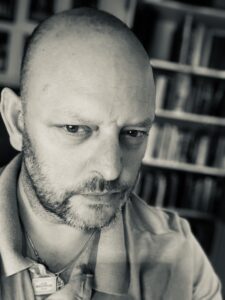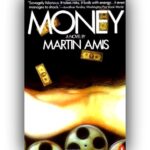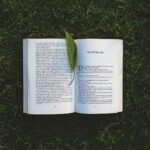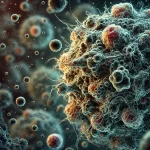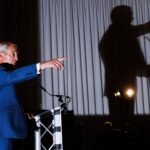
I’ve had my moments of tears, both solitary and shared. I’ve wept, sometimes as a mix of emotions intertwined with physical pain, other times in the comforting presence of my wife, and even in front of medical professionals. It’s safe to say that my emotional self has shouldered a substantial burden during this journey of recovery. Its a vulnerability which no one can truly prepare you for.
When faced with a life-altering medical condition, it serves as a reset button, forcing contemplation of one’s own mortality. While I may not have lost a limb or battled cancer, the realisation remains that the heart, as finite as any other organ, doesn’t beat forever. This concept of a limited number of heartbeats in a lifetime, often attributed to Mark Twain, echoes in my mind. It’s said that we’re given a certain number of heartbeats in our lives, but as someone who has faced major heart surgery and the arduous journey of recovery, I’ve come to value life not merely in terms of quantity but rather in the quality of experiences.
It might seem absurd to believe that we’re allotted a set number of heartbeats in our lifetime, yet the idea has merit. It emphasises the importance of taking care of ourselves, the one thing we do have control over, and something I haven’t done so well throughout my life.
I once attended a motivational seminar where an American preacher called Van Crouch was speaking. He said, ‘if you bought a million dollar race horse, you wouldn’t go feed it candy from a satellite dish. Yet we are given a billion dollar body and we go to McDonalds for our supper.’ How powerful is that. And yet there I was, eating myself to death.
In the wake of such surgery, emotions surge like a rollercoaster through a turbulent theme park. It’s not solely about the physical healing; it’s about stitching together the tapestry of one’s heart and soul. Picture waking up in a sterile hospital room, the realisation dawning on you like a freight train – your heart, the steadfast conductor of your life’s symphony, has faltered. It’s a heart-stopping moment in every sense of the word, and fear courses through your veins as you confront your mortality.
The sense of fear I experienced while seated with my son in the emergency room was suffocating. I felt as if I were clawing at my own neck, trying to free myself from its grip. It took a herculean effort to maintain composure as trusted medical professionals worked tirelessly to save my life.
Yet, amid this tempest of emotions, there’s an exquisite emotion that emerges – gratitude. It washes over you like a warm tide. You begin to appreciate the remarkable team of medical professionals who stood by your side, their skilled hands tirelessly working to mend your heart. Having walked the corridors of the medical world myself, I possess a unique perspective. I understand the depth of dedication and expertise required to orchestrate this life-saving symphony. The drive these individuals have to save a life is nothing short of awe-inspiring.
However, there’s another passenger on this emotional rollercoaster – anger. It’s not uncommon to feel anger towards oneself for not taking better care or even anger at the randomness of fate for dealing this particular hand. I found myself questioning the fragility of the human body, and that’s perfectly acceptable. Anger, too, is an integral part of this intricate journey, part of the path to recovery.
Yet, in the midst of this emotional storm, there’s a shining beacon: resilience. It’s something I learned as a child, forged in the face of constant abuse, and it served me well during my time as a soldier. Few things can truly faze me. I can become irrationally angry with inanimate objects, even punching my fist through walls, but one quality I possess is resilience. My ability to confront adversity head-on, whether in my personal life or on the operating table, is a trait I frequently call upon. My story serves as a testament to the boundless strength of the human spirit. When I find myself in the depths of melancholy, I reach for that resilience.
So, as I continue to explore the labyrinth of human emotions in my writing, I embark on my own journey of self-expression and healing. My worry about how long I have left on this Earth remains, though it’s an absurd concern. What truly matters is this precise moment, the absolute present.
In the grand tapestry of life, there’s a simple yet profound truth that often goes unspoken: “Tomorrow is never guaranteed.” While the exact source of this wisdom remains elusive, its message resonates universally. It’s a gentle nudge from the universe, reminding us that we can never be certain of what the future holds. This sentiment finds a special place in my writing, where I’ve expertly navigated the unpredictability of life and delved deep into the human condition. It’s a call to action, encouraging us all to seize the present moment, cherish every opportunity, and live life to its fullest.
It shouldn’t matter when I eventually depart from this world. What truly matters is now, this absolute second. In the tapestry of human existence, Eckhart Tolle’s words resonate like a timeless melody. He reminds us that life is a river, constantly flowing, with the past as water already downstream and the future as uncharted territory. The only point where true existence occurs is right here, in the present moment. Tolle’s philosophy aligns beautifully with how I feel right now. I am always searching for the intricacies of the human condition and challenging myself to confront my own fears. By embracing the power of the present moment, I not only deepen my authenticity but also allow myself to reflect on my own life. So, let’s heed Tolle’s wisdom and embark on a journey of mindfulness, for it’s in the present moment that life’s true magic happens, and where I can find its most vibrant inspiration.


